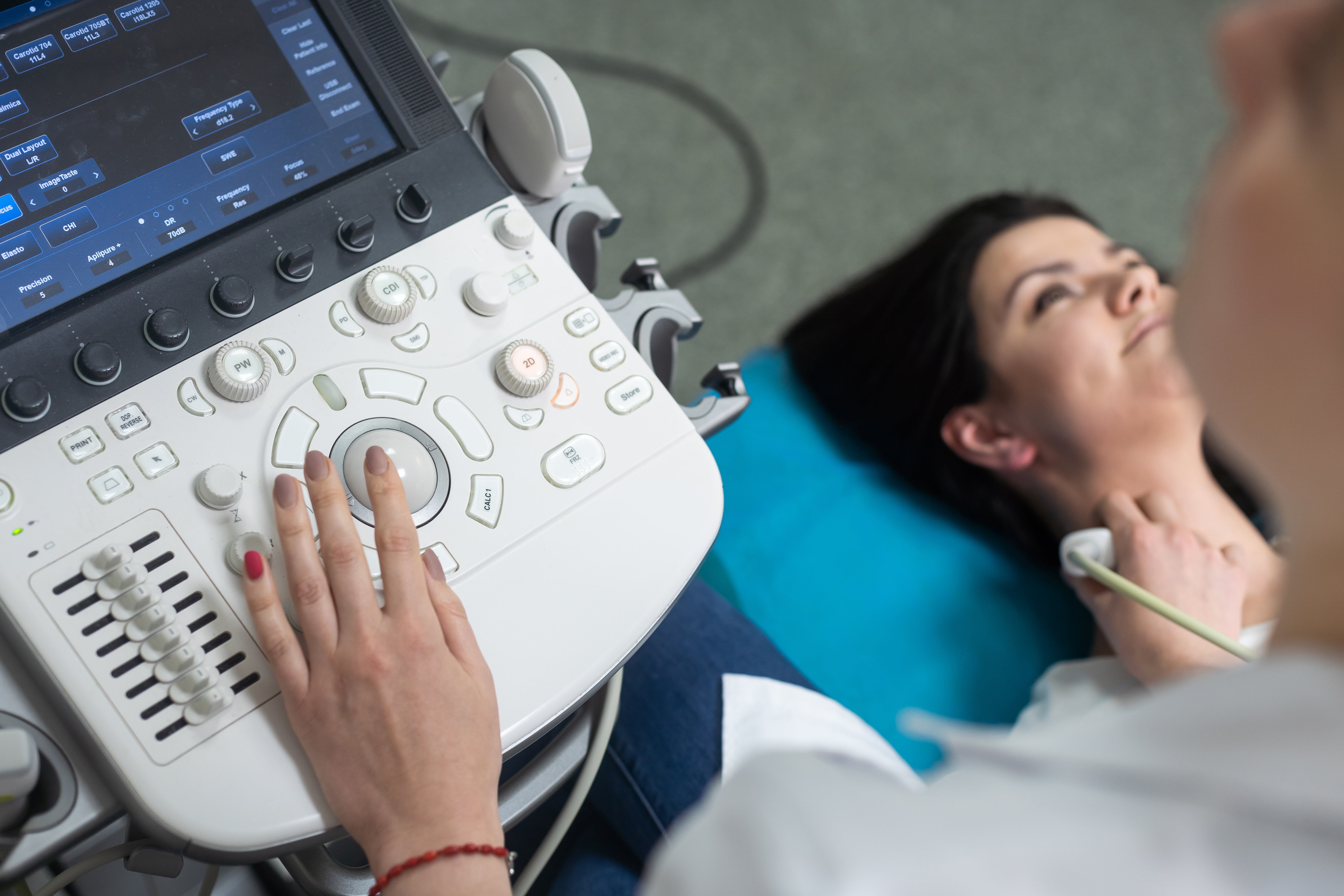14 Medical Conditions That Often Get Misdiagnosed as Anxiety
In the cacophony of modern life, anxiety has become a ubiquitous term, often used to describe a multitude of emotions and conditions. However, the complexity of the human mind and body means that symptoms commonly attributed to anxiety might, in fact, be indicative of other underlying medical conditions. This article embarks on a journey to uncover 14 eye-opening medical conditions that are frequently mistaken for anxiety. By delving into the nuances of these conditions, we aim to shed light on the importance of accurate diagnosis and the potential consequences of overlooking these often-misunderstood ailments. Understanding the distinction between anxiety and these conditions is not only crucial for effective treatment but also for the well-being of those who suffer in silence.
1. Hyperthyroidism: The Overactive Thyroid That Mimics Anxiety

Hyperthyroidism occurs when the thyroid gland produces excessive amounts of thyroid hormones, leading to an acceleration of the body's metabolism. This hyperactivity can manifest as symptoms that closely resemble anxiety, such as rapid heartbeat, sweating, irritability, and nervousness. Patients often report feeling on edge, with a sense of restlessness that mirrors anxiety disorders. However, unlike anxiety, hyperthyroidism can be diagnosed through blood tests measuring thyroid hormone levels. Understanding this distinction is vital, as untreated hyperthyroidism can lead to serious complications, including heart problems and bone loss. Proper diagnosis and treatment can alleviate symptoms, highlighting the importance of distinguishing between these two conditions.
2. Cardiac Arrhythmias: The Heart's Role in Anxiety-like Symptoms

Cardiac arrhythmias, or irregular heartbeats, can present with symptoms that are strikingly similar to anxiety attacks. Palpitations, dizziness, and shortness of breath are common complaints among those with arrhythmias, often leading to misdiagnosis. The sensation of a racing heart can be particularly alarming, causing individuals to assume they are experiencing anxiety. However, arrhythmias are a cardiac issue, requiring specific medical interventions. Electrocardiograms (ECGs) and other cardiac tests can help differentiate between anxiety and arrhythmias, ensuring patients receive appropriate care. Recognizing the heart's role in these symptoms is crucial for both mental and physical health, as untreated arrhythmias can pose significant health risks.
3. Gastroesophageal Reflux Disease (GERD): When the Stomach Mimics Anxiety

Gastroesophageal Reflux Disease (GERD) is a chronic digestive disorder where stomach acid frequently flows back into the esophagus, causing irritation. This condition can produce symptoms such as chest pain, heartburn, and a sensation of a lump in the throat, which can easily be mistaken for anxiety. The discomfort and pain associated with GERD can lead to increased stress and anxiety, creating a vicious cycle. Distinguishing GERD from anxiety is essential, as treatments differ significantly. While anxiety might require therapeutic interventions, GERD often responds well to dietary changes, medications, and lifestyle modifications. Understanding the gastrointestinal system's impact on mental health is crucial for comprehensive care.
4. Vestibular Disorders: The Inner Ear's Influence on Anxiety Perception

Vestibular disorders, which affect the inner ear and balance, can produce dizziness, vertigo, and a sense of disorientation. These symptoms can be mistaken for anxiety, especially when they lead to feelings of panic or unease. The inner ear plays a crucial role in maintaining balance, and any disruption can have profound effects on an individual's perception of their environment. Misinterpreting these symptoms as anxiety can delay appropriate treatment, prolonging discomfort. Vestibular rehabilitation and specific medical treatments can address these disorders, underscoring the importance of accurate diagnosis. By exploring the connection between the inner ear and perceived anxiety, we can better understand the interplay between physical and mental health.
5. Chronic Fatigue Syndrome (CFS): The Exhaustion Beyond Anxiety

Chronic Fatigue Syndrome (CFS) is characterized by extreme fatigue that cannot be explained by any underlying medical condition. This persistent tiredness can lead to cognitive difficulties, muscle pain, and sleep disturbances, which are often mistaken for anxiety symptoms. Individuals with CFS may experience a heightened sense of stress due to their inability to perform daily activities, further blurring the lines between CFS and anxiety. However, CFS is a distinct condition that requires a different approach to management, focusing on symptom relief and improving quality of life. Recognizing the difference between CFS and anxiety is crucial for providing effective support and care to those affected.
6. Adrenal Disorders: The Hormonal Imbalance That Feels Like Anxiety

Adrenal disorders, such as Addison's disease or Cushing's syndrome, involve the adrenal glands, which produce hormones critical for stress response and metabolism. Imbalances in these hormones can lead to symptoms that mimic anxiety, including fatigue, muscle weakness, and mood swings. Patients may feel overwhelmed, anxious, or depressed, leading to potential misdiagnosis. Blood tests and imaging studies can help identify adrenal disorders, allowing for targeted treatments that address the hormonal imbalance. Understanding the role of adrenal glands in stress and anxiety is vital for distinguishing between these conditions and ensuring patients receive the appropriate care.
7. Sleep Apnea: The Nighttime Disorder with Daytime Anxiety

Sleep apnea is a sleep disorder characterized by repeated interruptions in breathing during sleep, leading to poor sleep quality and daytime fatigue. The resulting exhaustion can manifest as irritability, difficulty concentrating, and anxiety-like symptoms. Individuals with sleep apnea may feel constantly tired and overwhelmed, mistaking these feelings for anxiety. Polysomnography, or sleep studies, can diagnose sleep apnea, allowing for treatments such as continuous positive airway pressure (CPAP) therapy. Addressing sleep apnea can significantly improve quality of life and reduce anxiety-like symptoms, highlighting the importance of considering sleep disorders in the differential diagnosis of anxiety.
8. Hypoglycemia: The Blood Sugar Crash That Feels Like Panic

Hypoglycemia, or low blood sugar, can cause symptoms that mimic anxiety, such as shakiness, sweating, confusion, and palpitations. These episodes can be frightening and are often mistaken for panic attacks. However, hypoglycemia is a metabolic condition that requires immediate attention to restore normal blood sugar levels. Recognizing the signs of hypoglycemia and differentiating them from anxiety is essential for preventing serious complications, such as loss of consciousness or seizures. Dietary management and monitoring blood sugar levels can help manage hypoglycemia, emphasizing the need for accurate diagnosis and treatment.
9. Autoimmune Disorders: The Body's Attack That Feels Like Anxiety

Autoimmune disorders occur when the immune system mistakenly attacks the body's own tissues, leading to inflammation and a wide range of symptoms. Conditions such as lupus or rheumatoid arthritis can cause fatigue, joint pain, and cognitive difficulties, which may be misinterpreted as anxiety. The chronic nature of autoimmune disorders can lead to increased stress and anxiety, further complicating the diagnostic process. Blood tests and imaging studies are crucial for identifying autoimmune disorders, allowing for treatments that focus on reducing inflammation and managing symptoms. Understanding the connection between autoimmune disorders and anxiety is vital for providing comprehensive care.
10. Lyme Disease: The Tick-Borne Illness with Anxiety-like Symptoms

Lyme disease, transmitted through tick bites, can lead to a variety of symptoms, including fatigue, joint pain, and neurological issues. These symptoms can be mistaken for anxiety, especially when they affect cognitive function and mood. The complexity of Lyme disease and its ability to mimic other conditions can lead to delays in diagnosis and treatment. Blood tests and a thorough medical history are essential for identifying Lyme disease, allowing for antibiotic treatment to address the underlying infection. Recognizing the potential for Lyme disease to mimic anxiety is crucial for ensuring patients receive appropriate care and support.
11. Fibromyalgia: The Painful Condition Often Misdiagnosed as Anxiety

Fibromyalgia is a chronic condition characterized by widespread musculoskeletal pain, fatigue, and cognitive difficulties. The persistent pain and associated symptoms can lead to feelings of anxiety and depression, often resulting in misdiagnosis. Understanding the distinct nature of fibromyalgia is essential for providing effective treatment, which may include medications, physical therapy, and lifestyle changes. By recognizing the overlap between fibromyalgia and anxiety symptoms, healthcare providers can develop more comprehensive treatment plans that address both the physical and emotional aspects of the condition.
12. Menopause: The Hormonal Transition Mistaken for Anxiety

Menopause marks the end of a woman's reproductive years and is accompanied by significant hormonal changes that can produce symptoms resembling anxiety. Hot flashes, mood swings, and sleep disturbances are common complaints during menopause, often leading to confusion with anxiety disorders. Understanding the physiological changes associated with menopause is crucial for providing appropriate support and treatment, which may include hormone replacement therapy and lifestyle modifications. By recognizing the impact of menopause on mental health, we can better support women during this transitional period.
13. Vitamin Deficiencies: The Nutritional Gaps That Feel Like Anxiety

Vitamin deficiencies, such as a lack of vitamin B12 or vitamin D, can lead to symptoms that mimic anxiety, including fatigue, irritability, and cognitive difficulties. These deficiencies can affect the nervous system and overall well-being, leading to increased stress and anxiety-like symptoms. Blood tests can identify vitamin deficiencies, allowing for targeted supplementation and dietary changes to address the underlying issue. Recognizing the role of nutrition in mental health is essential for providing comprehensive care and preventing misdiagnosis.
14. Chronic Infections: The Lingering Illness That Feels Like Anxiety

Chronic infections, such as Epstein-Barr virus or cytomegalovirus, can lead to persistent fatigue, muscle pain, and cognitive difficulties, which may be mistaken for anxiety. The chronic nature of these infections can lead to increased stress and anxiety, further complicating the diagnostic process. Blood tests and a thorough medical history are crucial for identifying chronic infections, allowing for treatments that focus on managing symptoms and supporting the immune system. Understanding the connection between chronic infections and anxiety is vital for providing comprehensive care.
The Importance of Accurate Diagnosis in Mental Health

The exploration of these 14 medical conditions highlights the complexity of diagnosing anxiety and the importance of considering alternative explanations for anxiety-like symptoms. Accurate diagnosis is crucial for ensuring patients receive appropriate treatment and support, ultimately improving their quality of life. By understanding the interplay between physical and mental health, healthcare providers can develop more comprehensive treatment plans that address the root cause of symptoms. This article serves as a reminder of the importance of thorough medical evaluation and the potential consequences of misdiagnosis, emphasizing the need for continued research and education in the field of mental health.